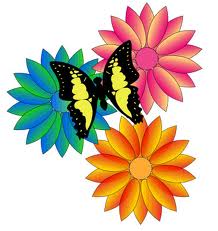Money seldom solves a person’s money problems. Financial literacy solves your money problems. Make your financial freedom the most important bill you pay every month. Ann Wilson.
I come from a generation where I was taught that the pathway to wealth is to exchange my time for money and that the longer I worked for someone (company or organisation) and the more money I earned in the process, I would be able to create wealth for myself.
After more than thirty years of doing this, I have come to realise that exchanging my time for money is a vicious cycle, like a hamster on a wheel, going nowhere slowly. Whether you give 150 percent or more of yourself, the increase in money remains the same percentage, your tax bracket changes and even though you are earning more money, because of the new tax bracket you could actually end up coming home with less cash in your pocket. So what’s the alternative?
In the last year or so, I’ve been doing research and attending workshops and seminars run by big achievers like Conrad Laubuscagne, JT Foxx, Ann Wilson (The Wealth Chef), and others. This coming weekend I will be attending a seminar by Robert Kiyosaki of Rich Dad, Poor Dad (the book) fame.
So what have I learned so far?
There is a big difference between Savings and Investments – why?
Savings – money to use for emergencies (security net)
Investments – money you are not using. Invested for long term (minimum of 5 years) and which you could live off the interest.
Increasing your income is not important but increasing your assets is. Increasing your income won’t solve your money problems, it only increases your spending. The more you earn, the more you want to spend.
We all need to keep an Income Statement and a Balance Sheet.
Income Statement – Record of your Income and Expenditure each month
Balance Sheet – Record of your Assets and Liabilities. You should review this every quarter.
What is an Asset? Something that causes money to flow back into your life
What is a Liability? Something that causes money to flow out of your life
In order to create wealth, you need to build up your Assets. We need to remove ourselves from the money for time exchange. Ann Wilson
Definition of Financial Freedom (according to Ann Wilson – The Wealth Chef): You are financially free when you have a big enough pot of assets that earn money for you and pay for your chosen lifestyle without you having to go out to work for someone.
What does being financially free mean to you?
• What could you create?
• What could you do in the world? (charity)
What is your destination (financial)? Be specific:
• How much is enough?
• How much money do you need in order to be financially free?
• What value of assets do you need to be financially free?
What do we need to do?
1. Start investing early – we need to start investing early to take advantage of compound interest. We need to invest in products like Retirement Annuity funds and Tax Free savings accounts – the latter only recently introduced here in South Africa.
Start small – invest a lump sum amount each month (start with as little as R50.00 per month into a low cost savings account). Set up a debit order to automatically take this money before you have a chance to spend it. Value yourself enough to pay yourself first! The habit is more important than the amount. Invest in yourself. Make your money work for you. You are worth it!
2. Be a passive investor – we need to be passive investors on the Stock Market but we should not listen to the Stock Brokers who so badly want to convince us they are the only ones who know how to make us rich. We should not take advice when it comes to picking stocks. We need to simply buy and hold a portfolio of low-cost Index Tracker Funds via an Online Broker which we can do ourselves, without the help of a third party. This is called passive investing and it works.
– Pick individual stocks not high fee mutual funds (Index Tracker Fund or Accumulation Fund). The Accumulation Fund is where your dividends get re-invested each month so you receive a compounded growth on your investment.
– Invest in low cost Exchange Traded Funds (ETF’s) that replicate the market without making any bets on what’s going to happen to individual stocks and leave the money there for long term (a minimum of five years)
– Google Exchange Traded Funds [name of country] to find the trading platforms available in your country. For South African’s – you could try http://www.etfsa.co.za. There are many others you could choose from which you will find via your Google search.
3. Consider the economics of leasing instead of buying. Often, renting wins. Now this is where I need some convincing because I was raised to believe that owning your own home is your greatest asset and a major achievement because it signifies wealth and prosperity. What I was never taught was that the house you are living in is not an asset, it is actually a liability. Why? Because an asset is something which brings in money for you and the house you are living in does not do that for you. The house you are living in is a liability because you are constantly having to spend money i.e. you have to pay the Mortgage Bond every month, utilities, maintenance, insurance etc – money leaving your pocket instead of coming in. Often you are better off leasing or renting rather than buying.
Renting vs Buying – you need to ask yourself these four questions:
• Are mortgage rates going to stay low?
• Are flats/condos going to increase in price?
• Are equities (stocks) going to decline in price?
• Am I comfortable having a large portion of my nett worth in one asset? Remember: the house you are living in is not an asset, it is a liability.
Assets fall into four groups or categories:
1. Equity – this is stocks, shares, bonds and mutual shares i.e. you share in the profits of somebody else’s business. Income from Equity is also known as Portfolio Income.
2. Income-generating property (residential or commercial) – this is not your private home. This is another property you own and which is being rented out to someone so you receive an income in the form of rent. This is also known as Passive Income.
3. Low-input businesses – This is a business that makes a profit for you, without you being actively involved in the daily running of the business. For example: you could earn royalties from a book you have written, royalties from E-books you sell via the internet, royalties from patents you hold on certain products or royalties earned from music you produce. You put the effort in upfront and then leave the products to earn income for you. Other examples include Vending Machines, ATM’s, automatic car wash systems and most online businesses – once created, they are driven and sold through automated systems.
4. You – your time and skills are your greatest asset which you exchange for money, however, less than 10 percent of your total income should come from you. 90 percent of your income should come from passive income sources. That is the way the wealthy generate income.
Wow! A major learning curve for me is that I’ve been doing it all wrong all this time.
I was taught to believe that I was responsible for earning 100 percent of my income through blood, sweat and tears – exchanging my time for money, working for someone, when, in fact, I should have systems in place where I can generate 90 percent or more of my income without even having to leave my house every day.
So . . . guess what? I’m now reviewing my skills to see which of my skills can generate a passive income for me – maybe not a book but I’m sure I can come up with a few E-books or something? I’m also soaking up as much information as I can about automated systems – what can be automated and how I could like this to my skills I have.
This sure is an interesting journey. By associating myself with the wealthy and super rich, I’m learning so much. It’s opened up a whole new world for me.
Questions:
• What part of the wealth journey are you on right now?
• Which goal do you want to achieve?
• Will that goal bring you closer to your dream (long term goal)?
• What do you have to do to achieve your goal? (your resources: effort, time, money)?
• Are you willing to sacrifice what is needed in order to achieve your goal?




Pingback: In Memory of Mom: Compassion and Support | africandream01
Pingback: In Memory of Mom: Life is a Journey | africandream01